Blog
Exploring the Benefits of Double Glazed Windows: Energy Efficiency and Noise Reduction Explained
In recent years, the adoption of double glazed windows has surged, driven by an increasing awareness of energy efficiency and noise reduction benefits. Studies indicate that double glazed windows can reduce heat loss by up to 50%, significantly lowering heating costs and energy consumption in homes. According to the U.S. Department of Energy, upgrading to double glazed windows can lead to energy savings of approximately 15% to 30% annually. Furthermore, these innovative windows effectively reduce external noise by up to 60%, creating a more serene indoor environment. As urban areas continue to grow and noise pollution becomes a pressing concern, the advantages of double glazed windows are becoming ever more important for homeowners and builders alike. With sustainability and comfort in focus, understanding the myriad benefits of these windows is crucial for making informed decisions in modern construction and renovation projects.

Understanding the Basics of Double Glazed Windows and Their Construction
Double-glazed windows consist of two panes of glass separated by a gap filled with inert gas, such as argon or krypton. This construction enhances thermal insulation, significantly reducing heat transfer between the interior and exterior of a building. According to the U.S. Department of Energy, homes with double-glazed windows can save up to 24% on heating costs in colder months and around 18% on cooling costs in warmer climates. These windows are designed not only to improve energy efficiency but also to contribute to a comfortable indoor environment year-round.
In addition to their energy-saving benefits, double-glazed windows provide excellent noise reduction. The space between the glass panes acts as a sound barrier, helping to minimize outside noise intrusion. Research by the Glass and Glazing Federation (GGF) indicates that double glazing can reduce noise by up to 60%, making a notable difference in urban areas or noisy environments. The effectiveness of sound insulation depends on the thickness of the glass and the width of the gap, with variations available to suit different acoustic needs. As homeowners increasingly prioritize comfort and energy efficiency, the advantages of double-glazed windows become ever more apparent.
The Role of Insulation in Energy Efficiency: How Double Glazing Helps
Double glazing plays a crucial role in enhancing energy efficiency through improved insulation. By incorporating two panes of glass separated by a layer of air or gas, double-glazed windows significantly reduce the transfer of heat between the inside and outside of a building. This design minimizes heat loss during winter months and prevents excessive heat from entering during summer, ensuring a more stable indoor temperature. As a result, homeowners can enjoy a comfortable living environment while relying less on heating or cooling systems, which ultimately leads to reduced energy bills.
Additionally, the insulation properties of double glazing contribute not only to energy savings but also to noise reduction. The gap between the glass panes acts as a buffer against outside noise, making homes quieter and more peaceful. This is particularly beneficial for residences located near busy streets or in urban environments where sound pollution is a concern. By investing in double glazed windows, homeowners enhance both their comfort and energy efficiency, creating a more serene living space while contributing to sustainability through lower energy consumption.
Exploring the Benefits of Double Glazed Windows: Energy Efficiency and Noise Reduction Explained
| Feature | Single Glazed Windows | Double Glazed Windows | Difference |
|---|---|---|---|
| Energy Efficiency | ~10% efficient | ~40% efficient | +30% efficiency |
| Noise Reduction | Up to 25 dB | Up to 45 dB | +20 dB reduction |
| Temperature Control | Less stable | More stable | Improved comfort |
| Condensation Resistance | High risk | Low risk | Less condensation |
| Installation Costs | Lower | Higher | +Investment needed |
Noise Reduction Benefits: Why Double Glazed Windows are Ideal for Urban Living
Double glazed windows are becoming increasingly essential for urban living, particularly in noisy environments. Their construction, featuring two layers of glass with a sealed air gap between them, effectively dampens sound transmission. This is especially beneficial for residents in densely populated areas, where external noise from traffic, construction, and nightlife can significantly impact comfort and well-being. The ability of double glazed windows to reduce noise pollution makes them an ideal choice for urban dwellings.
Recent initiatives, such as the retrofit program in Southwest Detroit, exemplify the importance of upgrading homes to mitigate the impacts of urban development. Such retrofits not only enhance energy efficiency but also contribute to creating a quieter living space for residents, showcasing the multifaceted benefits of modern window technology. With more people seeking tranquility amid the hustle and bustle of city life, investing in double glazing emerges as a prudent decision for those looking to improve their home’s acoustic performance.

Cost Savings Explained: Long-Term Financial Benefits of Double Glazed Windows
Double glazed windows offer significant long-term financial benefits that extend beyond initial installation costs. By creating an insulating barrier, these windows minimize heat loss during winter and keep homes cooler in summer, which directly translates to lower energy bills. With improved energy efficiency, homeowners can expect substantial savings on heating and cooling expenses over the years. In many cases, the reduction in energy consumption can lead to a return on investment within a few years, making double glazing a financially sound decision.
Additionally, the enhanced comfort provided by double glazed windows contributes to cost savings. With better temperature regulation, homeowners are less likely to rely on additional heating or cooling systems, leading to lower maintenance costs for HVAC systems. Furthermore, these windows can help reduce noise pollution, creating a more serene home environment, which can increase property value over time. As energy efficiency becomes a priority for many buyers, homes equipped with double glazed windows are often more marketable, potentially leading to a higher resale value and a favorable financial outcome for homeowners.
Environmental Impact: How Double Glazing Contributes to a Sustainable Future
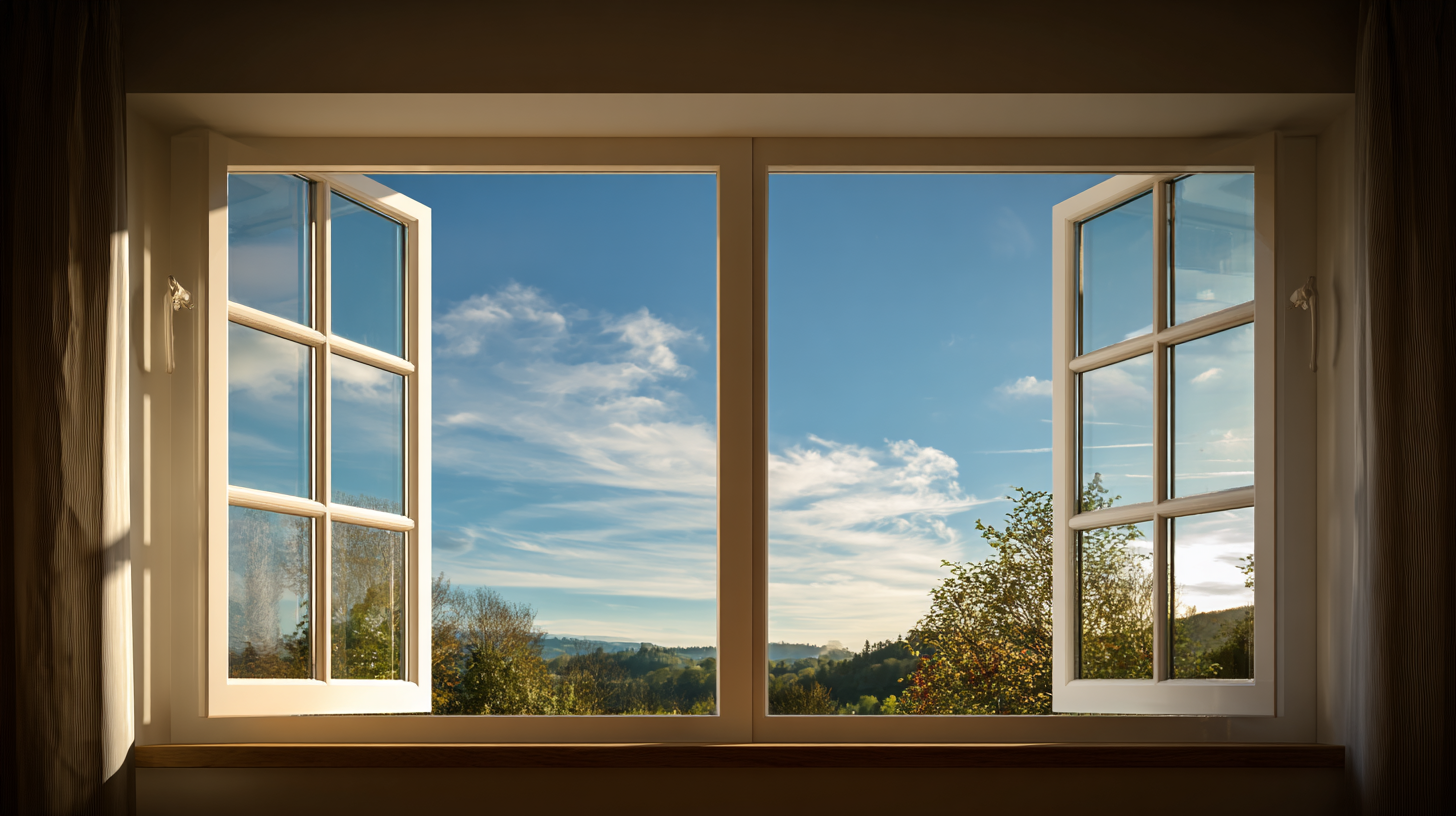 Double glazed windows play a crucial role in promoting a sustainable future by significantly reducing energy consumption. According to a report by the U.S. Department of Energy, windows account for 25-30% of residential heating and cooling energy use. By incorporating double glazing, homeowners can reduce their energy bills by up to 18%, benefiting both their finances and the environment. The two layers of glass create an insulating barrier that helps keep homes at a consistent temperature, reducing the need for excessive heating or cooling.
Double glazed windows play a crucial role in promoting a sustainable future by significantly reducing energy consumption. According to a report by the U.S. Department of Energy, windows account for 25-30% of residential heating and cooling energy use. By incorporating double glazing, homeowners can reduce their energy bills by up to 18%, benefiting both their finances and the environment. The two layers of glass create an insulating barrier that helps keep homes at a consistent temperature, reducing the need for excessive heating or cooling.
Another noteworthy aspect is the environmental impact of lower energy usage. The Energy Saving Trust highlights that by using double glazed windows, households can reduce their carbon footprint by nearly one tonne of CO2 per year. This reduction is pivotal in combating climate change and promoting a cleaner environment for future generations.
Tips: When considering double glazing, look for energy-efficient ratings such as ENERGY STAR, which indicate superior thermal performance. Additionally, explore options for frames made from sustainable materials, such as recycled PVC or timber, to further enhance the eco-friendliness of your windows. Make sure to consult with reputable professionals who can provide insights tailored to your specific needs and local climate.
Related Posts
-
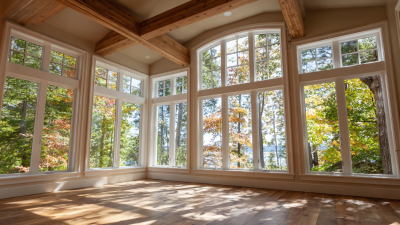
How Large Windows Transform Natural Light and Improve Indoor Air Quality
-
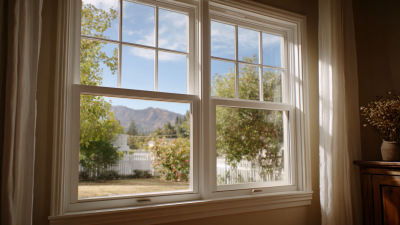
The Ultimate Guide to Choosing the Best Double Hung Window for Your Home
-
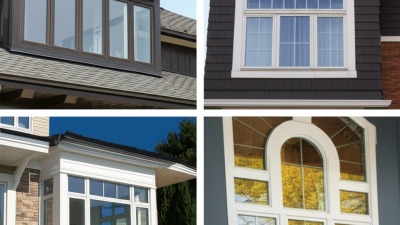
Transform Your Home's Aesthetic: Innovative Exterior Windows to Elevate Curb Appeal
-
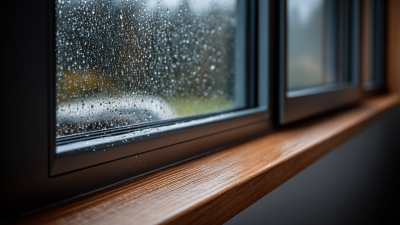
Exploring the Best Window Parts to Enhance Energy Efficiency in Your Home
